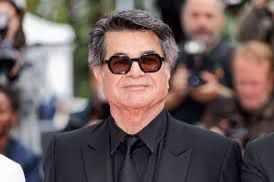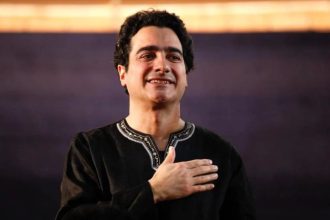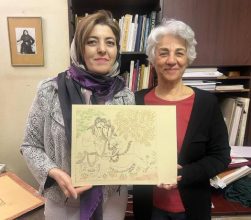
By Pooneh Nedai
Editor in chief of Shokaran magazine/ Iran
TEHRAN: Iranian filmmaker Jafar Panahi has been named as “Asian Filmmaker of the Year” at the 30th Busan International Film Festival in South Korea. This important award is given to those who have made a strong impact on Asian cinema. Panahi received it for his powerful films and his courage to continue working under restrictions. On this occasion, we take a look at his life, his important works, and the challenges he has faced over the years.
Early Life and First Films
Jafar Panahi was born in 1960 in Mianeh, Iran. He began his career as an assistant to the famous Iranian director Abbas Kiarostami. His first feature film, The White Balloon (1995), won the Camera d’Or at the Cannes Film Festival. The film tells the story of a young girl trying to buy a goldfish for the Persian New Year. It showed Panahi’s talent for telling simple, touching stories about everyday people.
Panahi continued with films like The Mirror (1997), The Circle (2000), and Crimson Gold (2003). These movies focused on the lives of women and the poor in Iran. The Circle won the Golden Lion at the Venice Film Festival but was banned in Iran because of its strong message about women’s rights.
Arrest and Film Ban
In 2010, Jafar Panahi was arrested by the government. He was accused of making films that were against the government. He was sentenced to six years in prison and banned from making films, giving interviews, or leaving Iran for 20 years. Many artists and organizations around the world protested this decision.
Even with this ban, Panahi continued to make films secretly. In 2011, he made This Is Not a Film, which was shot inside his home. The film was smuggled out of Iran on a USB drive hidden in a cake and shown at the Cannes Film Festival. It became a symbol of creative resistance.
He later made Closed Curtain (2013), Taxi (2015), and 3 Faces (2018). In Taxi, Panahi filmed from inside a car while pretending to be a taxi driver in Tehran. The film won the Golden Bear at the Berlin Film Festival. It was another way for him to keep making movies under the government’s restrictions.
In one of his interviews, Panahi said:
“When a filmmaker is forbidden from making films, it does not mean he stops being a filmmaker. He simply finds another way to tell his story.”

International Awards and Recognition
Despite all the challenges, Jafar Panahi has received some of the most important awards in world cinema. In 2025, he won the Palme d’Or at the Cannes Film Festival for his film A Simple Accident. This made him the first Asian director to win the three biggest film awards in Europe:
The Golden Lion (Venice) for The Circle, The Golden Bear (Berlin) for Taxi, and The Palme d’Or (Cannes) for A Simple Accident.
These awards show that his work is respected not only in Iran but all around the world.
Panahi once said: “Cinema is my way of expressing truth. Even if I have no camera, no budget, or no permission, I will still find a way to create.”
A Strong Message from Busan
The recent award at the Busan Film Festival is another recognition of his impact on cinema. In a message for the festival, Panahi said: “This award reminds me that cinema can still bring people together beyond borders, languages, and restrictions. I accept this prize not just for myself, but for all artists who continue to create in silence, in exile, or under pressure.”
A Symbol of Courage and Creativity
Jafar Panahi is not just a talented director but a symbol of freedom and bravery. His films talk about important issues and give a voice to people who are often not heard. His story shows how powerful cinema can be, even under the hard conditions.
He once wrote, “As long as there is reality, there is cinema. As long as people are suffering, there is a story to tell.”
Today, Panahi is seen as a hero of world cinema. His work inspires filmmakers and audiences everywhere to speak the truth and never give up on creativity.




